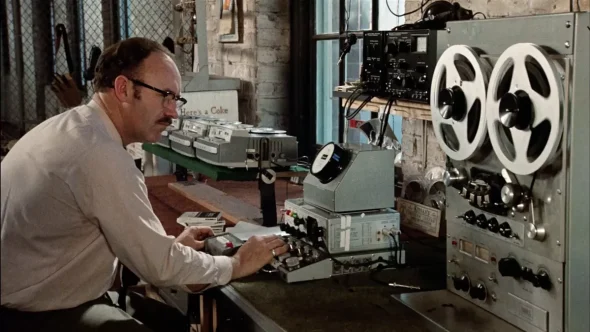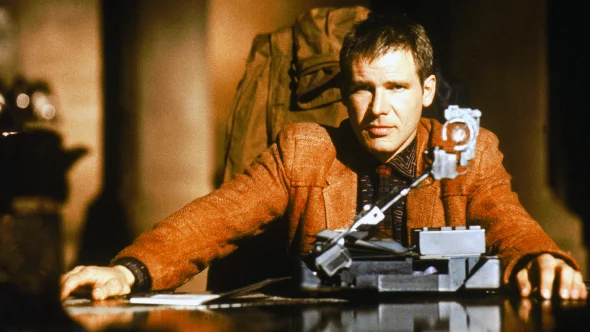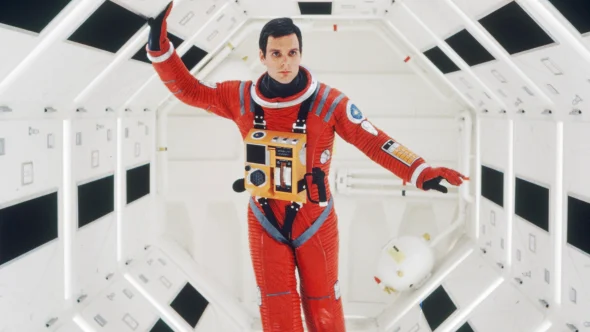
Bardo, False Chronicle of a Handful of Truths presented its supervising sound editor, Nicolas Becker, with a tall task: Capture the sound of Mexico and bring it to life on-screen. "Each time I've seen a film of Alejandro [G. Iñárritu] during my life, I dreamt about working with this pure master of cinema one day," Becker says. "To do this on this film has been a life changing experience."
The French foley artist, sound designer, and composer has never been one to turn down a challenge. He's worked on Oscar-winning films such as Gravity (2013), Ex Machina (2014), and Arrival (2016), and in 2021, won his own Oscar for Best Sound with Sound of Metal, about a heavy-metal drummer who suddenly loses his hearing. (Becker shared the honor with Jaime Baksht, Michelle Couttolenc, Carlos Cortés Navarrete, and Phillip Bladh.)
On Bardo, "It has been challenging to do a hybridization between the European culture of sound which is very naturalistic and an American culture of sound, which is less realistic but much more visionary," Becker explains. "The challenge was to combine these two cultures then integrate the world of Alejandro, who is so consistent and so specific."
The movie follows a renowned Mexican filmmaker, Silverio, as he returns to his home country for the first time in many years. Confronted with his past and the history of the country he left behind, Silverio experiences an existential crisis, which unfolds on-screen as a magical-realistic pilgrimage through space and time.
"The film by itself is floating between reality and dream. You are in the film, but you also are in the head of the character and in the head of Alejandro," says Becker. "So the challenge was to create a working flow to be able to follow in real time the intuitions of the director, to permit him to explore all the different ideas he wanted to try to fine-tune the sonic vocabulary of the film… Alejandro knows how to recreate a visionary complex world and, if you want to follow him, you have to integrate that in your process, artistically and technically.
Below, Becker shares with A.frame five films that have not only inspired his work in sound, but have shown him the unlimited potential of cinema.
MORE: With 'Bardo,' Alejandro G. Iñárritu Returned Home After 20 Years (Exclusive)

Directed by: Francis Ford Coppola | Sound by: Walter Murch and Art Rochester
An amazing film from Coppola. The sound of the film is a masterpiece from Walter Murch, who is one of my favorite super sound heroes. I've been experimenting a lot during my career trying to combine many different technologies and tools to create interesting sounds, and trying to find a specific sound vocabulary and a specific color for each film. I feel close to the character played by Gene Hackman. I think the film has established a new sonic language, and has questioned the sound subjectivity like no other film did before.

Directed by: Ridley Scott | Sound by: Bud Alper and Peter Pennell
I was 14 years old when I saw this film, and I was blown away by everything in this film. After the screening, I realized that I found what I want to do in life: Work on films. The story (adapted from Philip K. Dick), the characters, the set design, the costumes, the amazing music of Vangelis. The budget of the film was small and you can feel that everybody has found amazing creative ideas from all departments to compensate for the lack of money. Artiscally, a pure jewel. Definitely, for me, a film I will never get bored of seeing. Some sounds of this film are, for me, as unforgettable as Ben Burtt sounds.

Directed by: Stanley Kubrick | Sound by: H.L. Bird, Winston Ryder and A.W. Watkins
A pure masterpiece. I saw that film when I was 13 years old. I was alone in the theatre so it became a very strange mystic experience — the sound is also unforgettable. The silence in the space, the breathing of the astronaut, the HAL voice. At the end of the film when HAL is dying, we can hear his voice going slower, and slowly pitching lower. I used this idea [in Bardo] when Silverio is on the train, the announcement of the train is following the same process when the train slows down to stop. At his time, Kubrick was also exploring every artistic and technological possibilities to create a piece of pure cinema.

Directed by: Jacques Tati | Sound by: Jacques Carrère
When I saw Blade Runner, I decided that I want to work in film. When I saw Mon Oncle, I understood that I wanted to do sound, and more precisely, I wanted to become a foley artist. The way the sound is playing with the picture is so poetic and so meaningful. When we were working with Alejandro to find the right sonic language of the film, we were trying different forms, palettes of sounds. Then at one moment, Alejandro told us to imagine a mix between the sound of my film and the sound of the film of Jacques Tati! We tried it and it became a very good starting point. We understood that the sound should play with the audience like a strange, unpredictable, funny character.

Directed by: Federico Fellini | Sound by: Alberto Bartolomei and Mario Faraoni
I think I was 12 years old when I saw this film, but I remember every frame. I have seen this film maybe 50 times. I'm always thinking about this period in the '60s when some crazy producers managed to finance these amazing, poetic prototypes of cinema. In a way, Bardo is a tribute to this kind of risky experiences people were able to create and finance at this time. They truly believe in cinema. I think that is also why I feel so close to Alejandro — we both still deeply believe in cinema, and we both want to continue to explore and create new cinematic forms.







